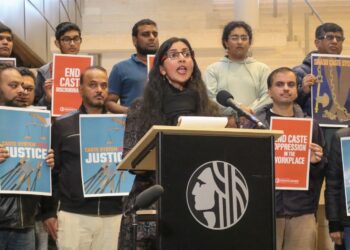In a move signaling increased scrutiny, the income tax (I-T) authorities are requesting Non-Resident Indians (NRIs) to furnish sworn statements detailing the precise number of days spent in India. The objective is to ascertain if NRIs have adhered to tax and disclosure norms, especially when their stay in India exceeds 181 days in a year. Here’s an overview of the evolving tax landscape for NRIs:
Several NRIs have received notices from the I-T department, urging them to submit signed affidavits affirming their non-resident status and specifying the number of days spent in India for the relevant assessment years. This move aims to validate the authenticity of their NRI status, as overstay beyond the permissible limit triggers tax and disclosure regulations applicable to residents.
NRIs, particularly those residing abroad, are encountering challenges in complying with the affidavit request. Obtaining affidavits on Indian stamp paper and notarizing them pose logistical difficulties for NRIs, potentially causing delays and complications in the assessment process.
While passport stamps serve as proof of days spent in India, determining the presence in other countries becomes complex due to variations in stamping requirements. Some countries do not mandate exit stamps, making it challenging for professionals to verify the exact duration of an individual’s stay outside India.
Submitting incorrect information or false affidavits exposes individuals to legal ramifications, violating penal codes and inviting scrutiny under the Income Tax Act and the Black Money (Undisclosed Foreign Income and Assets) Act of 2015.
Additionally, NRIs spending more than 120 days (but less than 182 days) in India may be treated as ‘resident but not ordinary resident’ (RNOR) if their total income from India exceeds ₹15 lakh. While an RNOR is exempt from tax on foreign income and asset disclosure, foreign earnings become taxable in India if the individual is not a tax resident in any other country.
The intensified focus on NRIs underscores the evolving landscape of tax compliance and residency determination, necessitating careful adherence to regulations and legal obligations.











